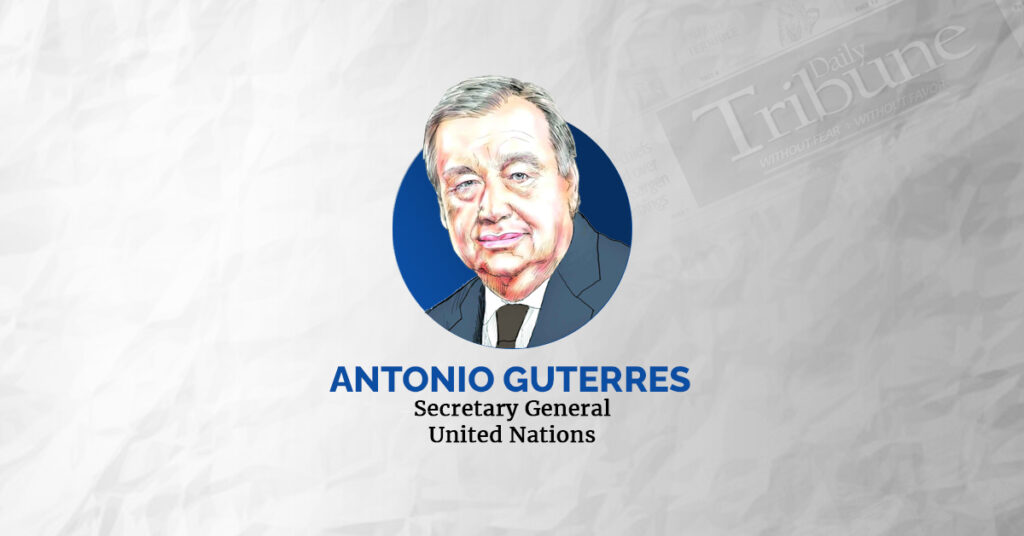Countries are pouring resources into deadly new nuclear technologies and spreading the threat to new domains.
And some statements have raised the prospect of unleashing nuclear hell — threats that we must all denounce with clarity and force.
Nuclear weapons are the most destructive weapons ever invented, capable of eliminating all life on earth. Today, these weapons are growing in power, range and stealth. An accidental launch is one mistake, one miscalculation, one rash act away. And ultimately, all of humanity will pay the price. A nuclear war must never be waged — because a nuclear war can never be won.
There is one path — and one path only — that will vanquish this senseless and suicidal shadow, once and for all. We need disarmament now.
In fact, eliminating nuclear weapons is the first action called for under the proposed New Agenda for Peace — our effort to strengthen the tools of prevention and disarmament. We need nuclear-weapon States to lead the way across six areas.
First — we need dialogue. Nuclear weapon States must re-engage in working together to develop transparency and confidence-building measures to prevent any use of a nuclear weapon. This should include measures that address the nexus between nuclear weapons and new technologies and domains.
Second — nuclear saber-rattling must stop. Threats to use nuclear weapons in any capacity are unacceptable.
Third — nuclear weapon States must re-affirm moratoria on nuclear testing. This means pledging to avoid taking any actions that would undermine the Comprehensive Nuclear-Test-Ban Treaty, whose entry-into-force must be the priority.
Fourth — disarmament commitments must become action. Nuclear-weapon States under the Treaty on the Non-Proliferation of Nuclear Weapons must reaffirm their commitment to that Treaty and to the commitments they have made as States Parties. And they should pledge to hold each other accountable to these commitments.
Fifth — we need a joint first-use agreement. Nuclear weapon States must urgently agree that none of them will be the first to use nuclear weapons. As a matter of fact, none should use them in any circumstances.
And sixth — we need reductions in the number of nuclear weapons. This reduction must be led by the holders of the largest nuclear arsenals, the United States and the Russian Federation, who must find a way back to the negotiating table to fully implement the New START Treaty and agree on its successor.
The responsibility to act extends to non-nuclear weapon States. In addition to fulfilling their own non-proliferation obligations, I urge their support for efforts to ensure that nuclear disarmament is verifiable and irreversible.
Help us hold nuclear-weapon States to account. Help us strengthen the global disarmament architecture — including the Treaties on the Non-Proliferation of Nuclear Weapons and the Prohibition of Nuclear Weapons. And support the work of the International Atomic Energy Agency, and our efforts to get the Conference on Disarmament back to work.
The diplomatic deadlock and outdated working methods that have come to define the Conference on Disarmament in recent years are shameful. When I addressed the Conference last month, I called for a new intergovernmental process, under the General Assembly, to develop reforms to disarmament bodies, including the Conference. We hope this could lead to a long-overdue fourth special session of the General Assembly devoted to disarmament.
September’s Summit of the Future — and the Pact that will emerge — will be an important moment for the world to gather around concrete reforms to the global disarmament architecture and the bodies and institutions that uphold it.
(Excerpts of the UN Secretary-General’s remarks to the Security Council on Nuclear Disarmament and Non-Proliferation on 18 March 2024.)
